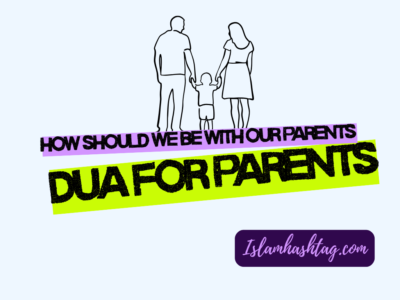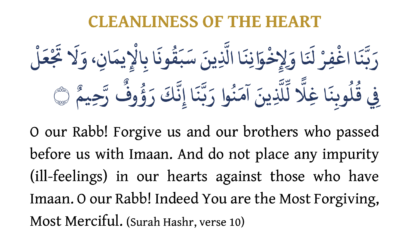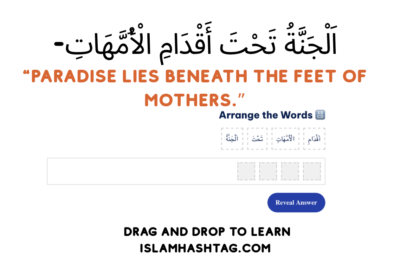You will be alarmed to know that according to the World Health Organisation, roughly 73 million induced abortions occur worldwide each year. 61% of it is due to unintended pregnancy. Russia’s abortion rate is 53.7 (2004) and the abortion rate of The United States is 20.8 abortions per 1,000 women.(1)
Many Muslim woman now a days casually force their daughter in laws to abort. Many woman in the fear of raising multiple children opt for abortion and let us not talk about the children of Zina. The rate at which zina (illegal sexual intercourse) is increasing is also alarming. Many Muslims don’t even know that the punishment of ZINA by a married person is stone till death obviously by Islamic law (punishable only by judge in Islamic countries).
In this article I am not going to talk about abortion from a fiqhi perspective and the difference in opinion in it- If it is allowed or not, when is it allowed etc? but let me just give a quick note.
According to the Hanafi juristic ruling, abortion is permitted till the foetus is lifeless. It is one hundred and twenty days after conception that soul is blown in the foetus after which abortion is disallowed. BUT abortion within 120 days is still makruh (disapproved). Muslim-majority countries includes preserving a woman’s physical or mental health, foetal impairment, cases of incest or rape, and social or economic reasons. There is great variation within Muslim-majority countries as to which are legally accepted reasons for abortion.
Hanbali jurist Ibn Taymiyyah stated in his fatwa collection Fatawa Ibn Taymiyyah, “Aborting a fetus has been declared unlawful (Haram) with the consensus of all the Muslim scholars. It is similar to burying an infant alive as referred to by Allah Almighty in the verse of the Qur’an: ‘And when the female infant, buried alive, will be asked as to what crime she was killed for’ (Surah al-Takwir, verse 8)”.
Sayyiduna Ali radi allahu anhu said that it can be so called only if the child begins to breath, meaning if an abortion is forced after the foetus stars living or a live child is born and it is buried then that is like burying alive a child.
Surah takwir, Verse 8,9
وَإِذَا ٱلْمَوْءُۥدَةُ سُئِلَتْ
بِأَىِّ ذَنۢبٍ قُتِلَتْ
and when baby girls, buried alive, are asked
for what crime they were put to death
People are so used to killing a girl child. Read this report-
What Quran says about killing girl children.
وَإِذَا بُشِّرَ أَحَدُهُم بِٱلْأُنثَىٰ ظَلَّ وَجْهُهُۥ مُسْوَدًّا وَهُوَ كَظِيمٌ
Whenever one of them is given the good news of a baby girl, his face grows gloomy, as he suppresses his rage.(16:58)
يَتَوَٰرَىٰ مِنَ ٱلْقَوْمِ مِن سُوٓءِ مَا بُشِّرَ بِهِۦٓ ۚ أَيُمْسِكُهُۥ عَلَىٰ هُونٍ أَمْ يَدُسُّهُۥ فِى ٱلتُّرَابِ ۗ أَلَا سَآءَ مَا يَحْكُمُونَ
He hides himself from the people because of the bad news he has received. Should he keep her in disgrace, or bury her ˹alive˺ in the ground? Evil indeed is their judgment!(16:59)
I won’t say much but would emphasise my point to stand against intended abortion through this hadith. It is an emotional incident from jahiliya and it always brings tears in my eyes.
Sahabi who buried his daughter Alive in Jahiliya.
Once there was a Sahabi who was always depressed and sad when he would come by Nabi (sallallahu ‘alayhi wa sallam). Nabi (sallallahu ‘alayhi wa sallam) asked him, ‘Why are you always sad?’ He replied, ‘O Rasulullah! I committed such a sin during the days of ignorance, I fear that Allah will not forgive me even after accepting Islam!’ Nabi (sallallahu ‘alayhi wa sallam) asked him about this sin, to which he replied:
“When I had not embraced Islam, a daughter was born to me. When I heard the news of her birth, I wanted to bury her as was expected of me. My ancestors had done the same because it was considered better to kill the girl at birth before she could run away with someone in youth and bring shame to the whole family. The culture and tradition demanded that I bury the daughter as soon as she was born, but my heart had already developed feelings for the child and I could not do so. Time went by, and she grew day by day. Every day, I felt an urge to kill her but every day the fatherly love wrestled with the thought and put it to rest. But when she came to the age of becoming a lady, the thoughts of her running away and bringing shame to the whole family started to haunt me every second of the day. It grew so unbearable that I could not rest; I could not sleep or eat. One day, I asked my wife to dress her in nice clothes and get her ready and tell her that I was going to take her out so she could play with her friends. Although my wife did the same, but somehow she sensed this was not what I intended to do. She kept on crying silently while she combed my daughter’s hair and dressed her. My daughter, on the other hand was delighted that I was going to take her out.
When she was finally done and I was about to leave, my wife mustered up enough courage to come up to me and whisper in my ears, “Don’t lose your trust!”
I rushed out of my house with my daughter and started on my way. I had no plan; my mind was in a state of confusion. Should I kill her or not? If I should, then how? Suddenly I saw an old deserted well that I knew was filled up with sharp stones. Should I throw my daughter in the well? My heart and mind were going in two opposite directions. My mind told me to kill her as she would bring shame to me one day while my heart kept on fighting but the fatherly love grew weaker and weaker. All this while, my daughter had been running around me, talking to me about things she would do with her friends oblivious to what a turmoil I was going through. I could not stand it no longer; I grabbed her and pushed in the well.
She must have been surprised, but all she could say was “Don’t lose your trust!” and this is what she kept on repeating until I could hear her no longer.
When the man finished his story, he looked up and saw Nabi (sallallahu ‘alayhi wa sallam) and the Sahabah (radiyallahu ‘anhum) weeping. Nabi (sallallahu ‘alayhi wa sallam) then said, “If he had been allowed to punish a person for his crimes before embracing Islam, I would have punished you.”
Children are amanat. It is Allah who gives rizq to all. Even a bird doesn’t return home empty stomach. Allah will take care. Stand against intentional abortion.
Share this message.
Note: This article was written on request of one of our reader. You can also request an article on a topic you want to read.
Discover more from Islam Hashtag
Subscribe to get the latest posts sent to your email.








